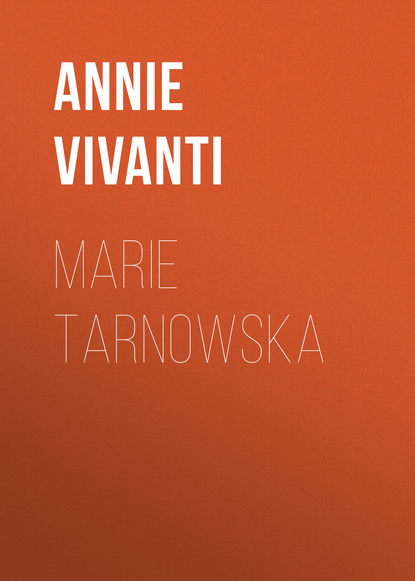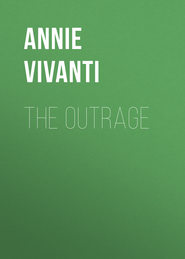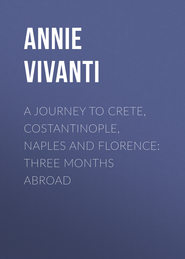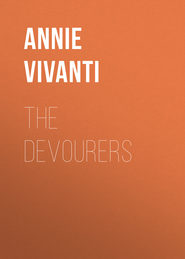По всем вопросам обращайтесь на: info@litportal.ru
(©) 2003-2024.
✖
Marie Tarnowska
Настройки чтения
Размер шрифта
Высота строк
Поля
XXIII
It was a hurried departure and an anxious journey. We arrived late in the evening at my father's house. He came to meet us at the gate, tall and solemn, his white hair stirred by the wind. He kissed me without speaking and laid his hand on Tioka's head.
“Mother—?” I scarcely dared to inquire.
“Better. She is better. She has improved greatly since she knew you were coming.”
Tioka had hurriedly kissed his grandfather's hand, and now was hastening up the great staircase to see his grandmother, to whom he was passionately attached. Soon his rippling laughter and his nimble footsteps could be heard all over the house, and my mother said that the happiness of it had well-nigh cured her.
It was scarcely daybreak next morning when Tioka came to call me to go down with him into the garden.
The great garden at Otrada—the garden of my girlhood—glowed in all its summer splendor, and Tioka ran before me with cries of joy at everything he saw.
“Look at the water! Look at the little bridge! Did you play here when you were little? Were you ever really little?” He looked at me doubtfully. “I mean really quite little—like Tania.”
The mention of his sister's name was like a blow to my heart. But Tioka was already flying across the lawn.
“Oh,” he cried. “There's the swing! I had forgotten there was a swing! Hurrah!”
“Hush, hush, dearest,” I warned; “don't disturb grandmama who is ill.”
He swung backwards and forwards, careless and handsome, shaking his blond hair in the wind.
“Grandmama cannot hear me; she is fast asleep still. And besides she is not ill any more now that we are here; otherwise grandpapa would not have gone to Kieff to-day.” Tioka jumped down from the swing and raised his face to me with adorable seriousness. “Tell me, mother, when one is ill with nervousness doesn't that mean that you want something you haven't got? Then if you get it you are well again, aren't you? Grandmama wanted us. We came. And now she is cured.” After a pause he went on: “I think I am ill with nervousness too. I am nervous for a bowl of goldfish; and for a hunting dog like that one,” he added, indicating a large setter lying stretched in the sun with his muzzle on his paws.
“Why, that is Bear!” I cried, “our old Bear.” I bent down to caress him. “Dear Bear, good Bear! Don't you recognize me?”
Bear raised his languid, blood-shot eyes, but did not stir.
“How sad he looks,” I said, touching his muzzle to see whether his nose was hot. “Perhaps he is ill.”
“Perhaps he is nervous, too,” said Tioka. “Very likely he is nervous because he wants a bone.” And the child broke into a peal of shrill, merry laughter.
In an instant the great dog had turned and leaped upon him. Snarling and growling he tore at his clothes, covering his shoulders and breast with blood-stained foam.
Tioka fell shrieking to the ground. I flung myself upon the frenzied animal, seizing him by the collar, by the ears, and striving to drag him back; but with hoarse growls and snappish barks the dog kept biting and tearing the child's garments as he lay prostrate and inert on the gravel. With one hand I clutched the neck of the dog, while with the other I picked up a stone and beat him on the head with it until the blood ran.
With a roar like that of a tiger, the animal turned and sprang upon me.
I felt the sting of his fang as it bit into my arm, and I struck his nose with the stone which was already covered with blood. With a cry of pain that had almost a human sound, the dog released his hold, turned and went off.
I saw him trotting away along the path, surly and dreadful, with his tail hanging down and his wounded head showing red in the sunshine.
I picked up the moaning, sobbing Tioka and ran with him to the house.
“Don't cry! don't cry, my darling,” I implored him, myself in tears. “Don't let poor grandmama hear you! It will kill her.” And Tioka tried his best to cry more softly. We crossed the courtyard to the servants' entrance, and I ran into the kitchen where the servants came thronging round us in alarm.
“The dog—,” I panted, “the dog has bitten us—do you think it will give us hydrophobia?” With a groan I dropped little Tioka into a chair; he was a pitiable sight in his torn and bloodstained garments.
The women and the two moujiks wrung their hands. “Oh, Lord! Oh, Lord! What shall we do? With the master at Kieff and the Countess ill in bed!”
The cook had filled a basin with boiling water and was laving Tioka's wounds, while he screamed with the redoubled pain.
I knew it was necessary to do something instantly. But what? I remembered having read in the life of the three Brontë sisters that one of those heroic girls had been bitten by a mad dog, and that she herself, without disturbing her sister, who was ill with consumption, had heated an iron red-hot and had cauterized her own wounds.
“Put an iron in the fire!” I said, pointing with trembling hand to the poker.
The dismayed women did so, and I bared my arm and little Tioka's lacerated shoulder.
But when I had the terrible instrument with its glowing point in my hand, my courage failed. Tioka was shrieking with terror like a poor little maddened creature, and the women were on their knees, weeping and praying.
Alas, I am not a heroine; I threw away the red-hot iron; we bound up the wounds—which, after they had been washed, looked insignificant and harmless enough—and determined to go to Kieff at once and consult a doctor. We went upstairs on tip-toe to my mother's room. She was still sleeping quietly, with her small, pinched face sunk in the pillow.
We did not venture to wake her and tell her our terrifying story. We left orders with the servants that they were to say my father had summoned us to meet him in Kieff; and we started.
All the way I watched Tioka with the deepest anxiety. I also probed my own feelings intently, wondering whether I felt any desire to bark. I cannot say that I did. Also, during the entire journey, I kept on showing Tioka glasses of water, but he did not seem to feel any the worse for them; nor did I. This comforted us a little.
As soon as we reached Kieff I telegraphed to Prilukoff:
“Both of us bitten by mad dog. What shall we do?”
He replied: “All right. Leave it to me.”
And, indeed, he arrived immediately and took us to Doctor Fritkof, who gave us injections of antirabic serum for three weeks. It made us feel very ill. Every minute I asked Tioka: “Do you feel inclined to bite any one?”
He invariably replied in the affirmative, which made me very miserable.
XXIV
Although Tioka and I both recovered, this alarming incident had its consequences on my life. It caused me to leave my old home, and from the moment of that departure I never saw my dear mother again.
With the passing of her mild and tender presence all that still was pure and holy vanished out of my life.
I was already on the brink of perdition. Freed from the restraint of that gentle hand, whose light touch even from afar had still controlled my heart, I plunged forward to destruction.
The inheritance was divided, and my share was dissipated I know not how. I returned to Moscow, and found myself ever more and more in need of money.
I lived luxuriously, I dressed gorgeously, and traveled from one place to another—yet I had nothing of my own except an income of four thousand rubles a year, which were scarcely paid to me before they were swallowed up in the gulf of my debts. I asked Prilukoff for money, and he gave it to me.
But there came a day when, on my asking him for five thousand rubles, he turned upon me abruptly.
“I have not got them,” he said. “At least,” he added, “not unless I steal them.”
“How dreadful,” I exclaimed in terror. “How can you say such a thing?” Then I laughed, feeling sure that he had spoken in jest.
“Get them from Kamarowsky,” said Prilukoff, curtly.
I started with indignation. From Kamarowsky! Never, never, as long as I lived. I had seen him frequently during the last few days; he and his charming little son, Grania, still in their deep mourning and with pale, sad faces, used to come and see me, and talk to me with many tears about their dear one who was gone. It would have been horrible, it would have been indecorous, to ask Kamarowsky for money.
It was a hurried departure and an anxious journey. We arrived late in the evening at my father's house. He came to meet us at the gate, tall and solemn, his white hair stirred by the wind. He kissed me without speaking and laid his hand on Tioka's head.
“Mother—?” I scarcely dared to inquire.
“Better. She is better. She has improved greatly since she knew you were coming.”
Tioka had hurriedly kissed his grandfather's hand, and now was hastening up the great staircase to see his grandmother, to whom he was passionately attached. Soon his rippling laughter and his nimble footsteps could be heard all over the house, and my mother said that the happiness of it had well-nigh cured her.
It was scarcely daybreak next morning when Tioka came to call me to go down with him into the garden.
The great garden at Otrada—the garden of my girlhood—glowed in all its summer splendor, and Tioka ran before me with cries of joy at everything he saw.
“Look at the water! Look at the little bridge! Did you play here when you were little? Were you ever really little?” He looked at me doubtfully. “I mean really quite little—like Tania.”
The mention of his sister's name was like a blow to my heart. But Tioka was already flying across the lawn.
“Oh,” he cried. “There's the swing! I had forgotten there was a swing! Hurrah!”
“Hush, hush, dearest,” I warned; “don't disturb grandmama who is ill.”
He swung backwards and forwards, careless and handsome, shaking his blond hair in the wind.
“Grandmama cannot hear me; she is fast asleep still. And besides she is not ill any more now that we are here; otherwise grandpapa would not have gone to Kieff to-day.” Tioka jumped down from the swing and raised his face to me with adorable seriousness. “Tell me, mother, when one is ill with nervousness doesn't that mean that you want something you haven't got? Then if you get it you are well again, aren't you? Grandmama wanted us. We came. And now she is cured.” After a pause he went on: “I think I am ill with nervousness too. I am nervous for a bowl of goldfish; and for a hunting dog like that one,” he added, indicating a large setter lying stretched in the sun with his muzzle on his paws.
“Why, that is Bear!” I cried, “our old Bear.” I bent down to caress him. “Dear Bear, good Bear! Don't you recognize me?”
Bear raised his languid, blood-shot eyes, but did not stir.
“How sad he looks,” I said, touching his muzzle to see whether his nose was hot. “Perhaps he is ill.”
“Perhaps he is nervous, too,” said Tioka. “Very likely he is nervous because he wants a bone.” And the child broke into a peal of shrill, merry laughter.
In an instant the great dog had turned and leaped upon him. Snarling and growling he tore at his clothes, covering his shoulders and breast with blood-stained foam.
Tioka fell shrieking to the ground. I flung myself upon the frenzied animal, seizing him by the collar, by the ears, and striving to drag him back; but with hoarse growls and snappish barks the dog kept biting and tearing the child's garments as he lay prostrate and inert on the gravel. With one hand I clutched the neck of the dog, while with the other I picked up a stone and beat him on the head with it until the blood ran.
With a roar like that of a tiger, the animal turned and sprang upon me.
I felt the sting of his fang as it bit into my arm, and I struck his nose with the stone which was already covered with blood. With a cry of pain that had almost a human sound, the dog released his hold, turned and went off.
I saw him trotting away along the path, surly and dreadful, with his tail hanging down and his wounded head showing red in the sunshine.
I picked up the moaning, sobbing Tioka and ran with him to the house.
“Don't cry! don't cry, my darling,” I implored him, myself in tears. “Don't let poor grandmama hear you! It will kill her.” And Tioka tried his best to cry more softly. We crossed the courtyard to the servants' entrance, and I ran into the kitchen where the servants came thronging round us in alarm.
“The dog—,” I panted, “the dog has bitten us—do you think it will give us hydrophobia?” With a groan I dropped little Tioka into a chair; he was a pitiable sight in his torn and bloodstained garments.
The women and the two moujiks wrung their hands. “Oh, Lord! Oh, Lord! What shall we do? With the master at Kieff and the Countess ill in bed!”
The cook had filled a basin with boiling water and was laving Tioka's wounds, while he screamed with the redoubled pain.
I knew it was necessary to do something instantly. But what? I remembered having read in the life of the three Brontë sisters that one of those heroic girls had been bitten by a mad dog, and that she herself, without disturbing her sister, who was ill with consumption, had heated an iron red-hot and had cauterized her own wounds.
“Put an iron in the fire!” I said, pointing with trembling hand to the poker.
The dismayed women did so, and I bared my arm and little Tioka's lacerated shoulder.
But when I had the terrible instrument with its glowing point in my hand, my courage failed. Tioka was shrieking with terror like a poor little maddened creature, and the women were on their knees, weeping and praying.
Alas, I am not a heroine; I threw away the red-hot iron; we bound up the wounds—which, after they had been washed, looked insignificant and harmless enough—and determined to go to Kieff at once and consult a doctor. We went upstairs on tip-toe to my mother's room. She was still sleeping quietly, with her small, pinched face sunk in the pillow.
We did not venture to wake her and tell her our terrifying story. We left orders with the servants that they were to say my father had summoned us to meet him in Kieff; and we started.
All the way I watched Tioka with the deepest anxiety. I also probed my own feelings intently, wondering whether I felt any desire to bark. I cannot say that I did. Also, during the entire journey, I kept on showing Tioka glasses of water, but he did not seem to feel any the worse for them; nor did I. This comforted us a little.
As soon as we reached Kieff I telegraphed to Prilukoff:
“Both of us bitten by mad dog. What shall we do?”
He replied: “All right. Leave it to me.”
And, indeed, he arrived immediately and took us to Doctor Fritkof, who gave us injections of antirabic serum for three weeks. It made us feel very ill. Every minute I asked Tioka: “Do you feel inclined to bite any one?”
He invariably replied in the affirmative, which made me very miserable.
XXIV
Although Tioka and I both recovered, this alarming incident had its consequences on my life. It caused me to leave my old home, and from the moment of that departure I never saw my dear mother again.
With the passing of her mild and tender presence all that still was pure and holy vanished out of my life.
I was already on the brink of perdition. Freed from the restraint of that gentle hand, whose light touch even from afar had still controlled my heart, I plunged forward to destruction.
The inheritance was divided, and my share was dissipated I know not how. I returned to Moscow, and found myself ever more and more in need of money.
I lived luxuriously, I dressed gorgeously, and traveled from one place to another—yet I had nothing of my own except an income of four thousand rubles a year, which were scarcely paid to me before they were swallowed up in the gulf of my debts. I asked Prilukoff for money, and he gave it to me.
But there came a day when, on my asking him for five thousand rubles, he turned upon me abruptly.
“I have not got them,” he said. “At least,” he added, “not unless I steal them.”
“How dreadful,” I exclaimed in terror. “How can you say such a thing?” Then I laughed, feeling sure that he had spoken in jest.
“Get them from Kamarowsky,” said Prilukoff, curtly.
I started with indignation. From Kamarowsky! Never, never, as long as I lived. I had seen him frequently during the last few days; he and his charming little son, Grania, still in their deep mourning and with pale, sad faces, used to come and see me, and talk to me with many tears about their dear one who was gone. It would have been horrible, it would have been indecorous, to ask Kamarowsky for money.








